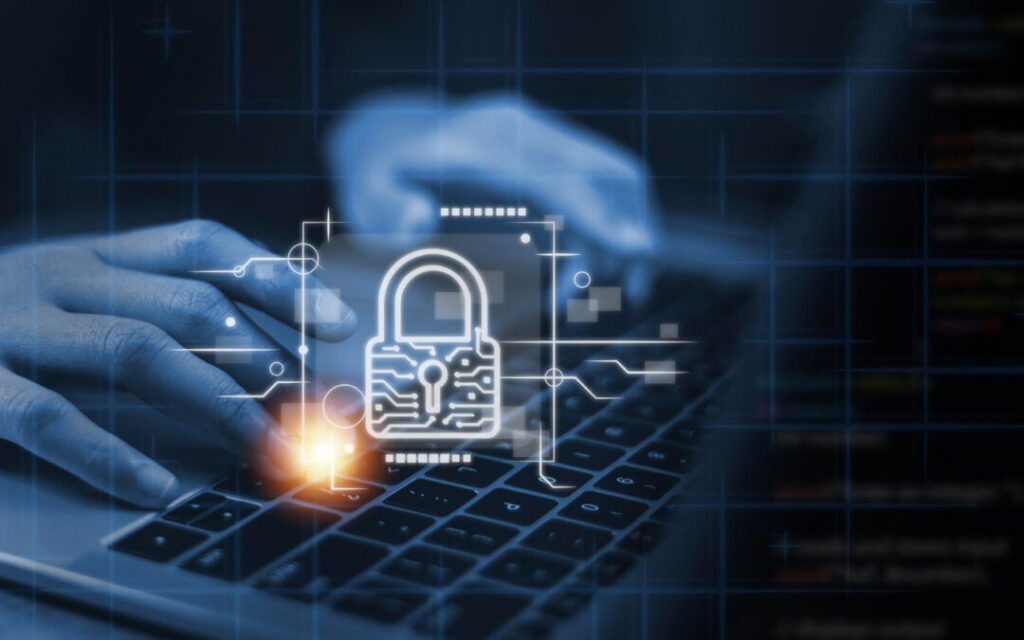30 Top Pieces Of Advice For Choosing A Cybersecurity Company in UAE
30 Top Pieces Of Advice For Choosing A Cybersecurity Company in UAE
Blog Article
Top 10 Ways To Determine The Qualifications And Expertise Of A Cybersecurity Services Company Located In Dubai, Uae
1. Check Professional Certifications for Professionals. Start with an examination of the qualifications held by employees. Find credentials like copyright Security Professional (copyright), Certified Information Security Manager (CISM), Certified Ethical Hacker (CEH), and copyright Auditor (CISA). These credentials indicate the highest level of competence and dedication to professional standards.
Review Team Experience
Examine the overall experience of the team members. Ask them about their previous experiences as well as the length of time they've worked in the cybersecurity sector and the previous positions they held. Team members with varied backgrounds from different industries will offer a broader array of perspectives regarding cybersecurity issues.
3. Check your education background
Review the educational qualifications of the key personnel. Degrees in computer science or information technology will provide a solid foundation in the field. Higher education degrees, coupled with certifications from professional organizations can boost credibility.
4. Analyze the specialization areas
Identify any specific areas of expertise among team members. It is beneficial to be skilled in certain areas, such as network security or data security. Expertise in specific areas will help you discover the most effective solutions to your particular cybersecurity challenges.
5. Contact us today to learn more About Our Ongoing Training & Development
The company should be evaluated on its commitment to continuous training and professional growth. Cybersecurity is rapidly evolving, and continuing education through seminars, workshops and certifications are essential to keeping skills up-to-date.
Review Past Projects, Case Studies and Case Studies
Ask about the company's previous work or case studies. It's helpful to review specific descriptions of the way in which the company tackled specific cybersecurity issues for its previous clients. This can provide you with an understanding of the company's problem-solving abilities and its effectiveness.
7. Find testimonials from customers and references
It is crucial to collect reviews and testimonials from former clients who are capable of evaluating the company's performance and experience. Positive feedback from clients can demonstrate a good image in the business and prove the ability of the business to deliver high-quality services.
8. Investigate industry engagement
Find out how the company is involved in the cybersecurity community. Contributions to cybersecurity publications or participation at conferences and webinars can demonstrate a commitment towards staying up-to-date on the most current trends.
9. Examine Research and Development efforts
Ask the business to determine if they are investing in R&D for their cybersecurity solutions. R&D is usually the first to introduce new technologies. This will benefit customers seeking innovative approaches to cyber security.
10. Look for Awards and Recognitions
Finally, research any awards or other recognitions the company has received in the cybersecurity space. Awards from industry are a sign of quality service and dedication. This could boost the credibility and reputation of a business. Follow the top rated Cybersecurity Company in Dubai for website tips including network and network security, careers in cyber security, network and security, info security, it security services company, cyber security analyst, cybersec consulting, cyber security website, careers in cyber security, data security management and more.
Top 10 Tips For Evaluating The Customer Support Of A Cybersecurity Services Firm
1. Start by evaluating the customer service. Check if there is 24/7 assistance available. This can be vital in the event of cybersecurity issues which could happen at anytime. You will have continuous access to assistance whenever you require it.
2. Examine Support Channels
Find out about the support options the company has including a number for phone calls or email address, a live chat, or ticketing system. The business should provide various ways to communicate so that you can select the best solution for your needs.
3. Check Response Times
If you need assistance ask about the response times of the company. For cybersecurity, in particular, quick response times are crucial. Rapid action is usually necessary to reduce the risk of cyberattacks. Check out their average response time to various types of questions.
4. Assessment of technical proficiency in support staff
Ensure that the customer support team is comprised of experienced experts with a thorough understanding of cybersecurity. Find out about their qualifications and their training, and the amount of experience they have in dealing with cybersecurity issues.
5. Investigate Escalation Procedures
Check the company's support inquiry procedure for escalation. If needed an escalation procedure that is clearly defined procedure will ensure that difficult issues are dealt with swiftly by experts of higher levels. Knowing the process can assist to boost confidence in your ability to address issues.
6. Request Testimonials of Clients for Support
You can also ask customers who have been with us for a while to provide feedback on their experience in dealing with customer service. Testimonials are a great way to gain insight into the reliability and efficiency of the team and also the satisfaction of clients with the service they receive.
7. Review Service Level Agreements (SLAs)
Service level agreements are important to consider when it comes to providing customer support. SLAs should define the expectations regarding time to respond, resolution of issues deadlines, and the level of support. Understanding these agreements will aid in setting high standards for service delivery.
8. Examine Proactive Encourage Initiatives
Examine whether the business offers proactive support programs like regular check-ins, health checks or security updates. Proactive support can help identify possible issues before they become serious improving overall security.
9. Evaluation of the training and resources
Ask about the resources and training you can offer your customers. Support should go beyond the resolution of issues. Companies that provide educational materials as well as training sessions, and access to a knowledge base enable their customers to increase their knowledge of cybersecurity.
10. Review Reviews by Customer Support
Then, investigate the reputation of the company within the market regarding customer support. Look up customer reviews on independent platforms. A cybersecurity partner with a excellent reputation is easily identified by their strong customer support. Check out the top penetration testing dubai for more examples including cyber security info, ai in cybersecurity, security on website, security network security, cyber security what is, cyber security information, it security technologies, network and security, network security tech, inform security and more.
Ten Tips To Help Determine The Security Awareness Training In An Organization That Offers Cybersecurity Services
1. Evaluation of Training ContentStart your evaluation by reviewing the entire content of the training programs to increase your security awareness. Make sure that the content of the training covers the most important topics such as phishing and social engineering. Also, make sure that data security and compliance are included. For employees to be able to identify and respond to potential threats, a comprehensive training program is essential.
2. Check the Customization Options
Inquire whether the training can be tailored to meet the specific requirements of your company and the culture of your company. Through tailoring training for the particular challenges and scenarios that employees face they face, you can boost relevance and engagement and improve retention.
3. Examine the methods used to deliver training
Examine the various ways of training delivery. You can choose to have in-person workshops as well as webinars, online courses and interactive simulations. Mixing different formats can accommodate different learning styles and increase overall effectiveness.
4. Interactive Elements
Check if interactive components are present in the course like questions, simulations and other real-world scenarios. Interactive training increases retention and engagement and allows employees to use their skills in real-world scenarios.
5. Evaluation of Update Frequency
You should inquire about the frequency which the training is conducted and how frequently the material is reviewed and updated. To keep your employees informed about the latest cybersecurity risks it is essential to have regularly scheduled training sessions.
6. Evaluation of Efficacy
Find out how the company evaluates the effectiveness of training. There are metrics such as pre- and post-training evaluations, participants' feedback, and trends in incident reporting. It is crucial to assess the impact of a program to determine its value and pinpoint areas to improve.
7. Check Certification and Completion
Check if the course will be accompanied by certification at the conclusion. The certifications will increase the credibility of employees and show that they've gained the required knowledge. Be sure to align your training with any relevant regulatory compliance requirements your company has.
8. Look up testimonials and references.
Get feedback from companies that have previously used the training services. Testimonials are an excellent opportunity to understand how effective the training was and how the employees responded. Positive feedback indicates a reputation for providing a high-quality awareness training.
9. Review Post-Training Assistance
Contact support following training. Ongoing resources, such as reminder courses, newsletters or access to a knowledge base can help reinforce the education and keep cybersecurity awareness in the forefront of employees' minds.
10. Evaluation of Engagement and the Building of Culture
Finally, evaluate how the training program is helping to create an environment of security in your company. Look for initiatives that promote continuous awareness. They could include security-related newsletters and seminars. Strong security cultures encourage employees to be responsible for protecting their organization. Read the best iconnect for blog advice including cyber security info, information technology security, security network security, cyber security information, cybersecurity and ai, secure it company, technology and cyber security, cyber security risks, cybersecurity consulting services, cyber security in usa and more.